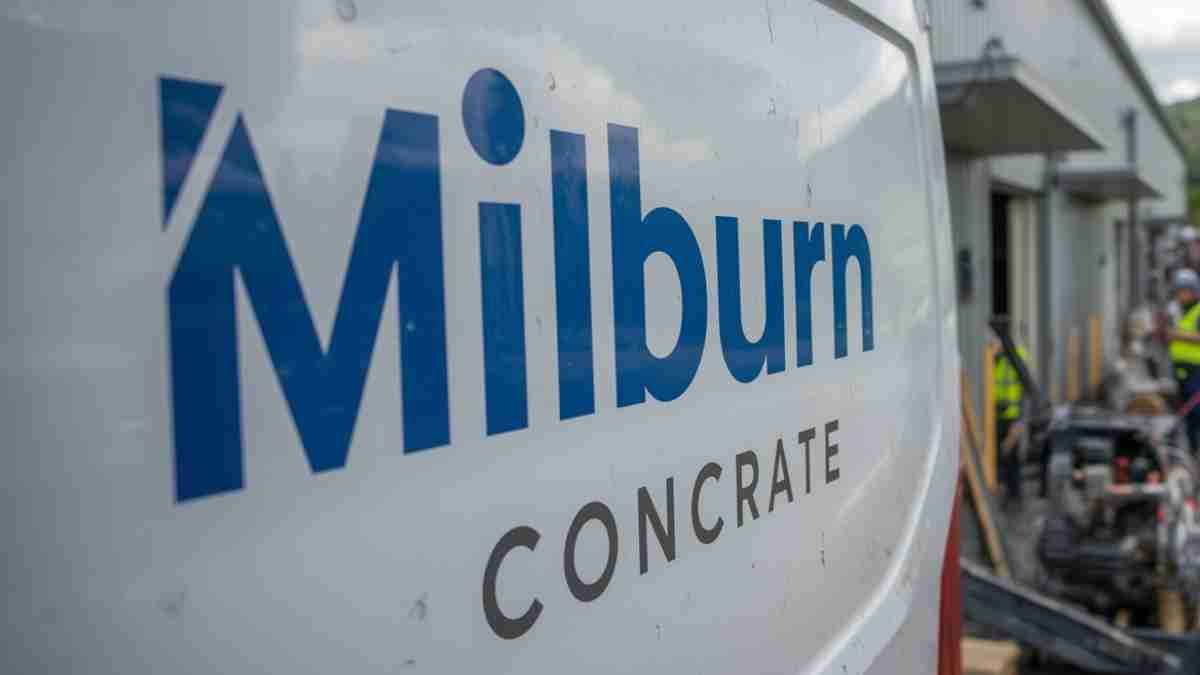Milburn Concrete: A Trusted Northern Irish Concrete Partner with Modern Capabilities and Community Roots

Milburn Concrete is a name that has resonated across Mid-Ulster and much of Northern Ireland for decades. Known for ready-mix concrete, floor screeds, concrete blocks and specialist pours, the business built its reputation on reliability, consistency and straightforward customer service. From agricultural yards and domestic foundations to commercial forecourts and public buildings, Milburn Concrete has supplied materials that quite literally underpin everyday life.
A Local Story with Regional Reach
Concrete is, at heart, a local industry. Transporting wet concrete over long distances is costly and risky for quality, so strong providers typically grow from a single community outward. Milburn Concrete exemplified this model. Rooted in Cookstown, it expanded supply routes across Tyrone, Derry/Londonderry, Antrim and beyond, becoming a fixture on sites large and small. Builders valued the firm for accurate batching, dependable delivery times and engineers who understood local ground conditions—peat pockets, clay stretches and the variable weather patterns that test pours and finishing.
What “Good” Looks Like in Ready-Mix Concrete
For buyers, whether self-builders, contractors or developers, choosing a ready-mix partner is an exercise in risk management. The concrete truck that turns up at 8:00am can make or break a day’s schedule. Milburn Concrete’s approach maps neatly to the core criteria professionals still use across the UK:
Mix design integrity: Proper cement content, aggregate grading and admixture selection to match strength classes (e.g., C25/30, C30/37) and exposure conditions (freeze-thaw, de-icing salts, sulphates).
Batching precision: Automated batching with regular scale calibration, moisture correction, and traceable tickets for every load.
Fleet reliability: Well-maintained mixers and, when needed, access pumps to place concrete safely and efficiently where barrows and chutes cannot.
Quality control: Slump and air testing when specified, cube sampling for compressive strength verification, and documented processes aligned to British and European standards.
Local know-how: Advice on curing in cold snaps or heat, sequencing pours in tight streets, and coordinating with screeding teams and finishers.
Product Portfolio: Beyond the Standard Pour
While plain ready-mix remains the backbone of most orders, a rounded supplier offers options that deliver programme certainty and performance benefits:
1) Ready-Mix Concrete
Standard structural mixes for footings, slabs, retaining walls and ground beams—tailored with plasticisers for workability or retarders for longer placing times on complex pours. Contractors in Northern Ireland often need flexibility to deal with quick weather changes; a supplier able to tweak admixture packages on the morning of delivery is invaluable.
2) Floor Screeds
A good screed is the quiet hero of a durable floor. Traditional sand-cement screed remains popular for its robust finish and ease of repair, while flowing screeds speed installation over large areas and around underfloor heating circuits. Milburn Concrete supplied both, with practical guidance on curing, drying times and surface readiness for floor coverings.
3) Specialist and Decorative Concretes
Exposed aggregate finishes, fibre-reinforced mixes for crack control, and high early-strength options for fast-track programmes help clients hit deadlines without compromising quality. These special products come into their own on driveways, forecourts and public realm projects where appearance and durability both matter.
4) Thermal Lightweight Aggregate (TLA) Insulation Solutions
Modern buildings aim for better energy performance and simpler sequencing. Thermal lightweight aggregate systems create a poured, insulating layer that levels floors, improves thermal performance and can reduce programme complexity. For projects juggling insulation, service voids and drying windows, this kind of solution can be the difference between a smooth handover and repeated snagging.
Plant, Pumps and the “Last 50 Metres”
Even the best mix fails if it can’t be placed where it’s needed. Tight urban plots, rural sites with awkward access, basements and upper floors all demand smart logistics. Milburn Concrete’s use of boom pumps for fast, safe placement reduced manual handling, accelerated pours and improved finish quality. For domestic projects where wheelbarrows would have churned the lawn or where formwork sits behind a garden wall, a boom pump is often the most economical choice once time and labour are factored in.
Sustainability and Compliance Considerations
Concrete’s environmental footprint is under scrutiny across the UK. Responsible local suppliers help clients cut embodied carbon and meet compliance obligations:
Admixture and SCM usage: Substituting a portion of cement with supplementary cementitious materials (where design allows) can reduce a mix’s embodied carbon.
Optimised mix designs: Achieving specified strengths without “over-cementing” saves carbon and cost.
Transport efficiency: Local sourcing minimises haulage emissions and helps deliveries hit their slump window.
Waste minimisation: Accurate ordering, staged deliveries and good placement planning prevent over-ordering and disposal.
For public and commercial clients, well-kept plant records, delivery tickets, and test data make project audits smoother. A supplier that understands EN 206, BS 8500 and relevant Building Regulations can actively reduce project risk.
Choosing a Concrete Supplier in the UK: A Buyer’s Checklist
Whether you are building a single-storey extension in Belfast or a mixed-use block in Birmingham, the same questions will guide you:
Coverage and lead time: Can the plant reach your site reliably, and how far in advance must you book?
Testing regime: Do they offer onsite slump tests and cube sampling when required?
Documentation: Will you receive batch tickets with time stamps, mix IDs and admixture details?
Pump availability: Can they coordinate a line or boom pump for the same slot?
Weather strategy: How do they handle hot-weather pours, frost risk and sudden showers?
Screed expertise: Do they provide guidance on curing, drying and compatibility with underfloor heating?
Aftercare: Who answers the phone if a pour is delayed or you need a late change to workability?
Milburn Concrete built its business by meeting these needs in a practical, down-to-earth way. Those same criteria remain the yardstick for any UK buyer.
Case Types Where a Regional Supplier Excels
Agricultural Slabs and Yards: Heavy point loads from machinery demand fibre reinforcement, careful jointing and a finish that resists abrasion.
Domestic Extensions and Renovations: Small volumes, tricky access, last-minute design tweaks—the bread and butter of a flexible local plant.
Forecourts and Industrial Units: Tighter flatness tolerances, fuel-resistant finishes and night-time pours around live operations.
Public Realm: Decorative finishes, consistent colour across multiple phases, and the logistics of working around pedestrians.
In each scenario, a partner that combines the right plant, a modern fleet and field-tested advice can save days on programme.
How Flexible Workspaces Fit Into the Picture
At first glance, concrete and coworking may seem worlds apart. In reality, they share a vital link: the pace of urban change. The growth of flexible workspaces and serviced offices in the UK has transformed how buildings are refurbished and used. Many coworking schemes occupy retrofitted buildings where floor levelling, acoustic control and fast-track programmes are critical. Here is how the two sectors intersect:
Fast-Track Fit-Outs: Flexible office operators depend on rapid turnaround. Flowing screeds and precise concrete works deliver flat, dry floors ready for raised systems, carpet tiles or timber finishes.
Acoustics and Comfort: Screeds over acoustic mats, or dense topping layers, contribute to sound attenuation and thermal mass—important in open-plan offices.
Services Coordination: Underfloor heating and chilled water loops require consistent cover and levelness; a capable screed supplier helps the M&E team meet tolerances.
Aesthetics: Polished or sealed concrete finishes suit the contemporary aesthetic popular in many coworking spaces.
UK Coworking and Flexible Workspace Providers to Know
To keep this guide neutral and genuinely useful for property teams, here are well-known UK operators often involved in refurbishment and new-build CAT A/CAT B projects:
IWG (Regus and Spaces): A wide footprint across cities and towns, often in mixed-use buildings where rapid fit-out is essential.
The Office Group (TOG): Premium design-led spaces in landmark properties, where floor performance and finish quality are paramount.
Workspace Group: Focused on London, typically adapting light industrial and heritage stock into creative campuses.
x+why: Sustainability-minded operator with B Corp ethos, emphasising low-carbon fit-outs and responsible materials.
Huckletree: Tech and creative hubs with event-driven layouts that rely on durable, acoustically managed floors.
Local Independents: From Manchester to Belfast, regional operators often occupy secondary offices where high-spec screed and topping systems can transform the experience quickly.
Developers, landlords and project managers evaluating flexible workspace conversions should involve the concrete and screed supplier early. Early coordination helps determine whether a thermal lightweight layer, a high-flatness screed or a polished topping will best balance cost, programme and performance.
Practical Tips for Domestic Customers
Not every customer is a contractor. If you are a homeowner planning a driveway, extension or garden studio, a few simple steps will make your pour go smoothly:
Measure twice, order once: Confirm volume with your builder. Order a little contingency if access is difficult, but avoid large over-orders.
Prepare access: Ensure the truck can get close enough. If not, consider a small boom pump or ground line.
Mind the weather: In hot spells, shade forms and have curing materials ready. In cold snaps, discuss frost precautions and potential delays.
Finish and cure: A good finish is the start, not the end. Keep the slab damp (as advised) and protect it from early traffic to prevent surface dusting or cracking.
Why Regional Expertise Still Matters
The UK construction market is sophisticated, and national brands offer strong coverage. Yet the finer details—haul times, staff who know local routes, and an instinct for when showers tend to roll in off the hills—still tilt the balance toward regional suppliers for many projects. Milburn Concrete’s story underlines this truth. Its longevity came from being close to clients, investing in plant that matched local demand and training drivers and batchers who treated each delivery as a commitment, not a commodity.
Lessons for Buyers Across the UK
Demand transparency: Clear mix IDs, batch times and delivery documentation.
Ask for options: Don’t default to one screed type or slump—explain the job and invite proposals.
Schedule realistically: Stagger trucks, plan wash-outs, and coordinate the pump to avoid cold joints.
Think whole-life: A few pounds saved on cement content can cost far more if the slab underperforms. Optimise for lifecycle, not just day-one price.
Link to broader goals: If you’re pursuing a sustainability rating or corporate carbon target, ask for embodied-carbon data and practical reduction measures.
Conclusion
Milburn Concrete built a reputation on consistency, community and capability—values that remain the gold standard for ready-mix and screed suppliers across the UK. Whether you are delivering a retail forecourt, a family extension or a full-floor flexible workspace, the fundamentals do not change: a well-designed mix, accurate batching, dependable logistics and practical site support. As the built environment continues to evolve—refurbishing older stock, creating adaptable offices and upgrading homes for comfort and efficiency—the connection between skilled regional concrete partners and successful projects only grows stronger. Choosing a supplier with the right plant, the right people and the right mindset remains the surest foundation for any build.



